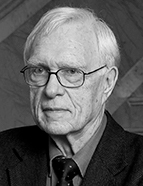

Stanley George Payne (Denton, Texas, 1934) is an important and controversial historian specialising in Spanish studies. His areas of expertise focus on the contemporary history of Spain and the history of Fascism. In addition to these, his research includes the modern history of Spain and Portugal and the history of Fascism in Central and Eastern Europe. He has written more than 20 books, having begun his career in 1961. He has also published hundreds of articles in dozens of academic journals and newspapers.
Payne was born in Denton, Texas, into a Protestant family. His father provided a modest but reasonable living for his family during the Great Depression, working as a carpenter, while his mother studied nursing and worked briefly as a nurse before her marriage. The family moved to California in 1944. It was there that he began his academic training at Pacific Union College, where he obtained his bachelor’s degree, before moving on to Claremont University, where he completed his master’s degree. From there, he travelled to the East Coast, where he completed his doctorate at Columbia University in New York. His interest in Spanish history began at Claremont University and deepened at Columbia University (“Oral History...”, 2018).
In 1968, he began his career as a professor of history, teaching at five American universities. Of particular note was his long stay at the University of Wisconsin-Madison, where he taught until 2005. At this university, his contact with the German historian George L. Mosse, who was based in the United States, proved fundamental to the development of his perspective and approach to the history of fascism, having been influenced by comparative and culturalist approaches. In 1999, he joined the editorial board of the important Journal of Contemporary History, founded by Mosse and Walter Laqueur decades earlier. There, he promoted their legacy and reoriented the journal towards its original focus: the history of fascism (The Journal of Contemporary History, 2015, pp. 731-732). He is currently retired, having been awarded the title of Professor Emeritus by his university (Francisco J. R. Jímenez, ‘Stanley Payne ¿Una trayectoria...?’, 2015, pp. 28-29).
This work is financed by national funds through FCT - Foundation for Science and Technology, I.P, in the scope of the projects UIDB/04311/2020 and UIDP/04311/2020.
